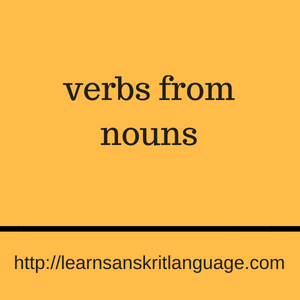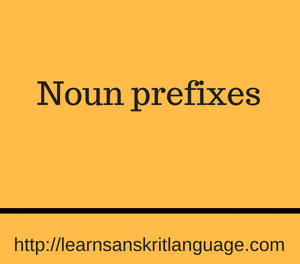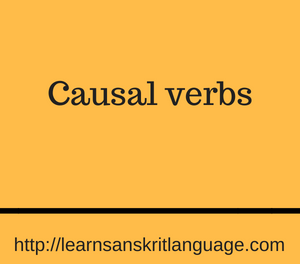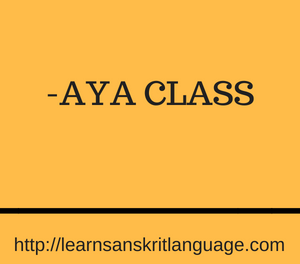It is of a lot of importance for learners to keep in mind that grammar of any language has to be understood verbs from nouns as a whole system and not separate units because a word conducting one action at one point might have a different role to fulfill at some other instance.
As surprising as it sounds, nouns and adjectives do function as verbs, this can be proved through the examples given below:
HAND me those gloves.
WHITEN the house by tomorrow.
BLACKEN the paper.
In all the above-mentioned statements, the words put in the upper case letters are nouns, however, the way they play the role of the verbs.
A nominal verb is a verb formed from a noun. However, a nominal stem has to be formed for that. If a noun has two stems, the weaker one is used, if a noun has three stems, it is advisable to use the middle one. Please note that when this transformation takes place, the sounds of “i” and “u” are lengthened, the “a” that occurs finally is also lengthened. The resulting verb usually ends with P, and in some cases, with an A. The table given in the next page will enhance the clarity about this.
नमस् → नमस्यति
worship → He worships.
पुत्र → पुत्रीयति
son → He wants a son.
गोप → गोपायति
protector → He protects.
कथा → कथयति
narration → He narrates, he tells.
राजन् → राजायते
king → He behaves like a king.
the “-aya” class. If a particular stem, from the noun, ends in aya, please note that the words ending in àya, `tya or ya is not included. This can be explained with an example:
मन् → मन्त्र → मन्त्रय → मन्त्र्
man → mantra → mantraya → mantr
think → mantra → deliberate, make counsel (stem) → deliberate, make counsel (root)
कथा → कथय → कथ्
kathā → kathaya → kath
narration → narrate (stem) → narrate (root)




